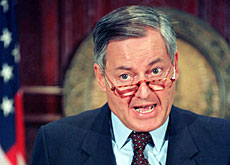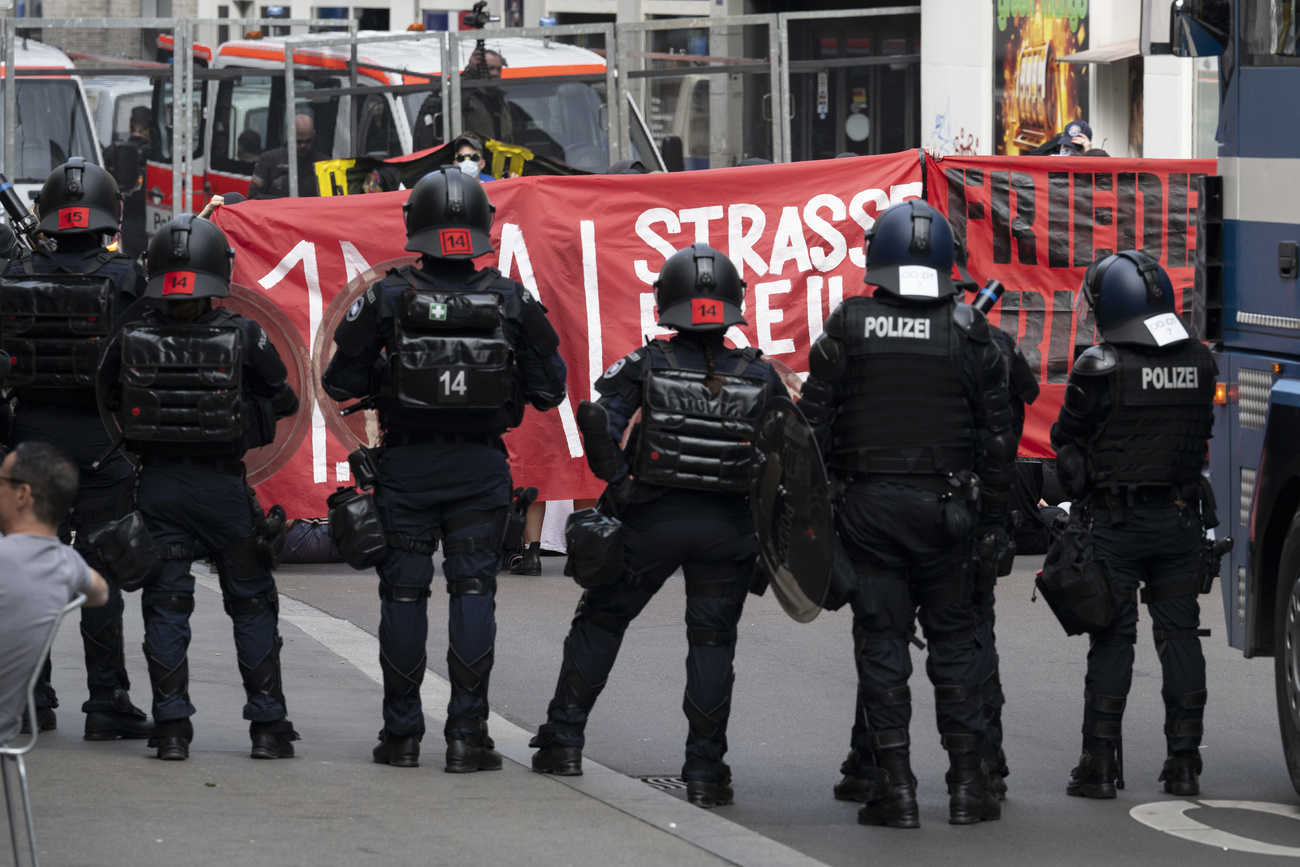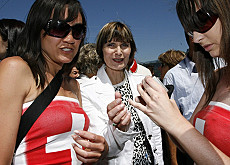Ex-diplomat takes foreign policy to task

Switzerland's former ambassador to Washington Carlo Jagmetti says the country should favour discreet diplomacy over action with limited success.
In an interview with swissinfo, Jagmetti, who stepped down ten years ago amid controversy over dormant Holocaust assets in Swiss banks, considers Switzerland’s image abroad.
His comments came as Foreign Minister Micheline Calmy-Rey on Monday opened this year’s ambassadors’ conference in the capital, Bern – a gathering of senior representatives from Switzerland’s diplomatic service and the foreign ministry’s Agency for Development and Cooperation (SDC).
Calmy-Rey has ruffled a few diplomatic and political feathers with her policy of “active neutrality” which seeks to raise the profile of Swiss diplomacy and promote international law, human rights and peace.
swissinfo: You used to take part in ambassadors’ conferences when you were still in the diplomatic service. What are your memories?
Carlo Jagmetti: I can remember many gatherings with all kinds of people. The aim was to touch base with the foreign ministry headquarters, the federal authorities and individual cabinet ministers. The idea was to get a feel again for the country.
swissinfo: How important are such contacts to diplomats?
C.J.: It depends how the conference is organised and what you make of it. I remember having very useful meetings where you were able to gain a general overview. You heard what headquarters and colleagues in other countries thought.
The conference is also a place to bring up issues and ask for further information and instructions.
swissinfo: Ambassadors represent the country and help shape its image. What kind of image of Switzerland did you try to convey?
C.J.: I wanted to get across the cultural and historical diversity of Switzerland. We have made remarkable achievements in various fields even if – politically speaking – we are rather an insignificant and small country.
My ambition was also to try and adjust the country’s clichéd image of the Matterhorn peak and chocolate that it might have among tourists. I was keen on having a more realistic image of the country with its strong points and its less strong points.
swissinfo: To what extent can an ambassador really influence Switzerland’s image?
C.J.: An image is not shaped by an ambassador, it’s created by the people in Switzerland.
The reputation is good if Switzerland does not do anything wrong and if there are no political or social problems.
But if things don’t go so well, news of it will automatically spreads beyond the borders. It’s impossible to stop it but you can hope for understanding.
It is an important part of the job in the diplomatic service to help shape the right picture by organising talks and cultural events, as well as through your presence as an ambassador.
swissinfo: Foreign Minister Calmy-Rey is an advocate of active neutrality and of an open-minded Switzerland. Is this how the country is perceived abroad?
C.J.: Switzerland has always spoken out and taken action in the past albeit with more restraint and more discreetly. Our point of view was always listened to with interest when we took the podium at meetings of international organisations.
I can’t say whether it is really necessary to take action to ensure that Switzerland’s voice is heard more clearly. I believe that it is better to maintain a certain degree of discretion rather than offering comments on every world event.
Switzerland has always taken action in the past. You can always do more, of course. But it is important to distinguish clearly between effective and useful action and simply seeming to be to active all the time.
swissinfo: Is your perception of Switzerland shared by the outside world?
C.J.: I’m no longer in the diplomatic service but I still travel abroad occasionally. As far as I can see Switzerland is still held in high esteem.
It might not be admired as much as it once was by other nations. But there are still people who look to Switzerland with envy. They acknowledge that Switzerland is still a role model when it comes to law and order, stability, continuity and coherence.
swissinfo-interview: Susanne Schanda
Carlo Jagmetti was Swiss ambassador to Washington between 1993-1997.
His previous postings include Paris (1987-1993) and Brussels where he represented Switzerland’s interests towards the then European Community – now the EU.
The first job for the career diplomat, who studied law, was in South Korea.
Jagmetti’s career as a diplomat came to an abrupt end in 1997.
He stepped down over a leaked report in which he said Switzerland was facing a war with the Jewish organisations over their efforts to recover dormant Holocaust-era assets from Swiss banks.
The traditional four-day gathering of high-level Swiss diplomats in Bern brings together ambassadors, consuls general and heads of cooperation from the Swiss Agency for Development and Cooperation (SDC) from August 27-30.
This year’s conference focuses on efforts to increase coordination within the foreign ministry. The theme of the conference is ‘Switzerland – a country that speaks out and acts’.
Among the participants is Carla Del Ponte, who will step down as chief prosecutor of the International War Crimes Tribunal in the Hague to take up the post of Swiss ambassador to Argentina at the beginning of next year.

In compliance with the JTI standards
More: SWI swissinfo.ch certified by the Journalism Trust Initiative











You can find an overview of ongoing debates with our journalists here . Please join us!
If you want to start a conversation about a topic raised in this article or want to report factual errors, email us at english@swissinfo.ch.